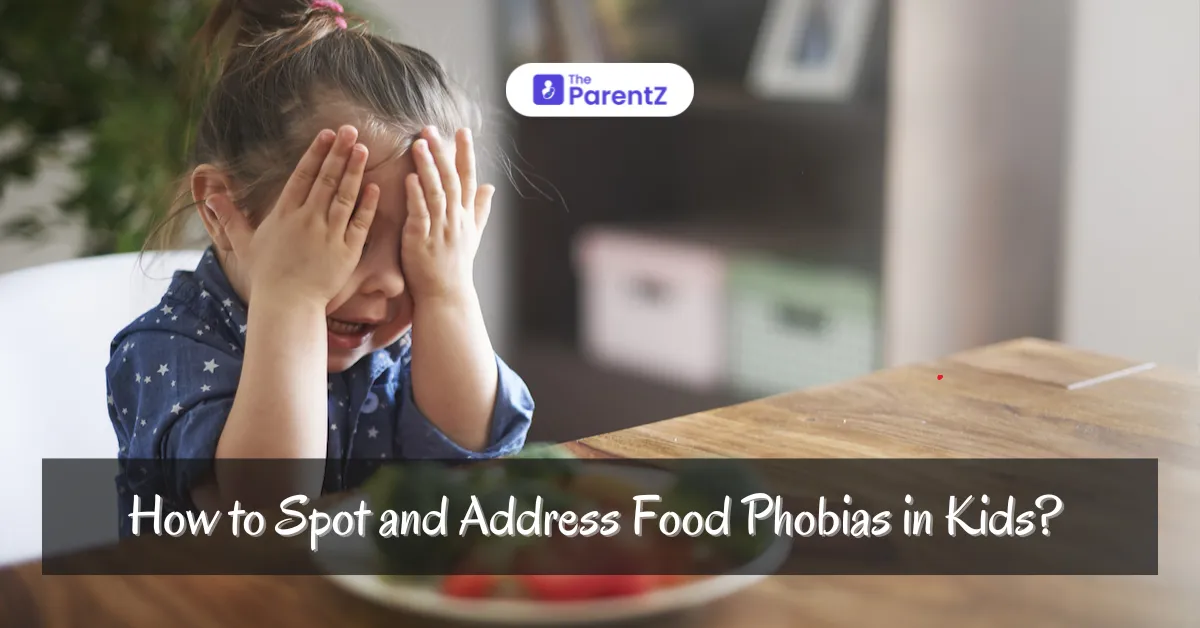Imagine sitting at the dinner table, watching your child push away a plate of food with tears in their eyes. It's not just pickiness—it's something deeper. Welcome to the complex world of kids food phobia, a challenge that impacts countless families and leaves parents feeling frustrated, worried, and sometimes helpless.
What Exactly is a Food Phobia?
A food phobia, clinically known as food neophobia, goes far beyond typical picky eating. It's an intense, often overwhelming fear of trying new foods or encountering specific food textures, smells, or appearances. For children experiencing these phobias, food isn't just unappetizing—it can be genuinely terrifying.
This condition can stem from various factors, including negative past experiences with food, sensory sensitivities, or anxiety related to eating. For example, a child who has had a choking incident may develop a fear of solid foods altogether. Understanding the underlying causes of these fears is crucial for parents looking to support their children.
Signs of Food Phobia
When we talk about kids food phobia, we're talking about complex emotions. These aren't children who are simply being difficult. They're experiencing genuine anxiety, fear, and sometimes physical discomfort that can feel completely impossible.
- Extreme Refusal: A child consistently refuses to eat certain foods or entire categories (like vegetables or meats).
- Physical Reactions: Symptoms such as gagging, vomiting, or crying when faced with specific foods.
- Anxiety Around Mealtimes: Children may show signs of distress or anxiety when it’s time to eat, often leading to prolonged mealtimes.
- Narrow Food Preferences: Only accepting a very limited range of foods, often preferring the same items repeatedly.
- Social Avoidance: Avoiding meals with friends or family due to fear or anxiety about the food served.
If you notice these signs persisting over time, it may be time to seek professional help.
Understanding the Root Causes
Kids food phobia isn't a choice—it's often a complex interplay of factors:
- Sensory Processing Challenges: Some children have heightened sensory sensitivity. What feels like a normal texture to one child might feel unbearable to another.
- Anxiety and Neurodevelopmental Conditions: Children with autism, ADHD, or anxiety disorders are more likely to experience intense food-related fears.
- Traumatic Food Experiences: A single negative experience—like choking, severe stomach illness, or public embarrassment—can trigger long-lasting food phobias.
Strategies for Parents
Validate Their Experience
The most crucial step is acknowledging their fear is real. Phrases like "I understand this feels scary for you" can work wonders.
Create a Safe Exploration Environment
- Never force foods
- Allow gentle, pressure-free exposure
- Celebrate small victories
Gradual Exposure Techniques
- Let children touch new foods without eating
- Involve them in food preparation
- Use positive reinforcement
- Create playful interactions with food
Professional Support Options
- Consider consulting:
- Pediatric nutritionists
- Child psychologists
- Occupational therapists specializing in sensory processing
- Speech therapists understanding sensory integration
When to Seek Additional Help
While many children naturally expand their food preferences, persistent food phobias might indicate deeper challenges. Watch for:
- Significant weight concerns
- Nutritional deficiencies
- Social isolation due to food fears
- Extreme anxiety that interrupts daily functioning
Practical Home Strategies
- Create low-pressure food environments
- Make meals fun and interactive
- Use storytelling and imagination
- Implement gentle exposure techniques
- Cook together
- Grow vegetables as a family
- Create positive food memories
- Use playful language around eating
Conclusion
Every child's journey with food is unique. What works for one might not work for another. The most important ingredients are love, patience, and understanding.
Remember, you're not alone. Countless parents navigate similar challenges, and with the right approach, remarkable transformations are possible.
Your child isn't giving you a hard time—they're having a hard time. With your support, they can learn to see food as a source of joy, not fear.








Be the first one to comment on this story.